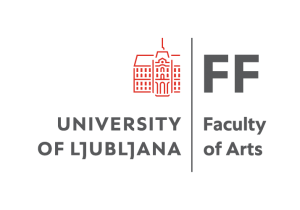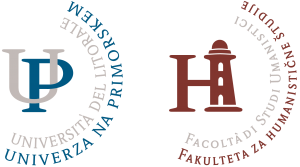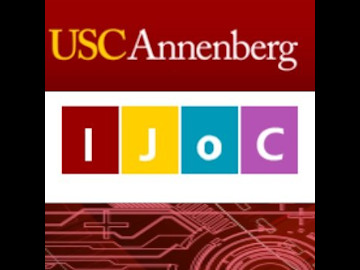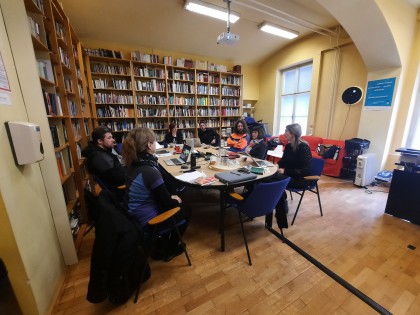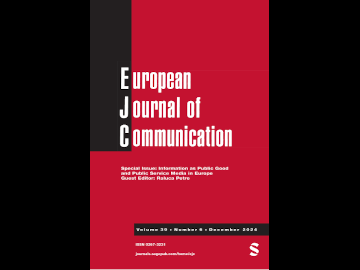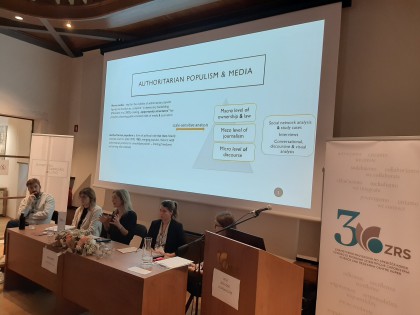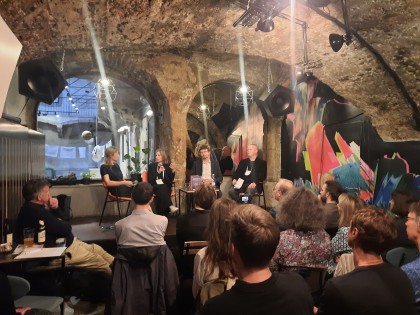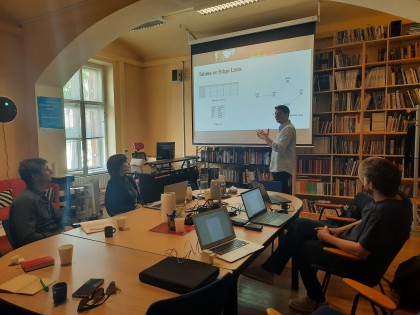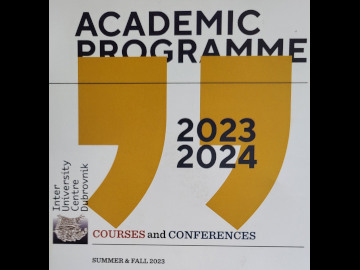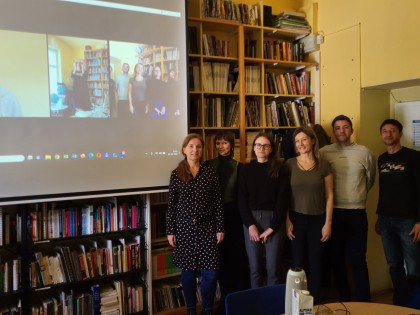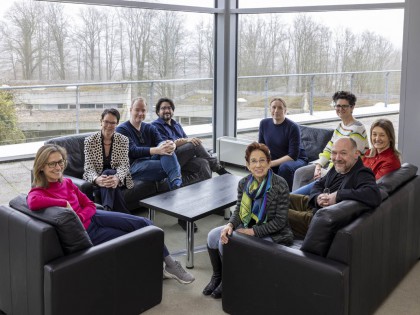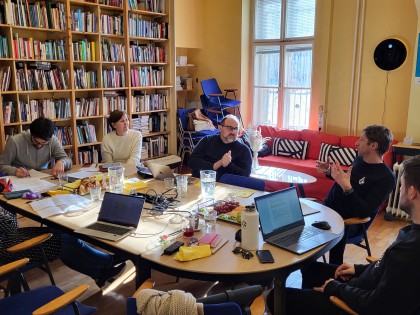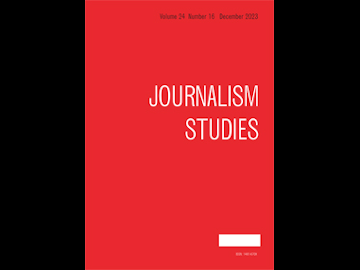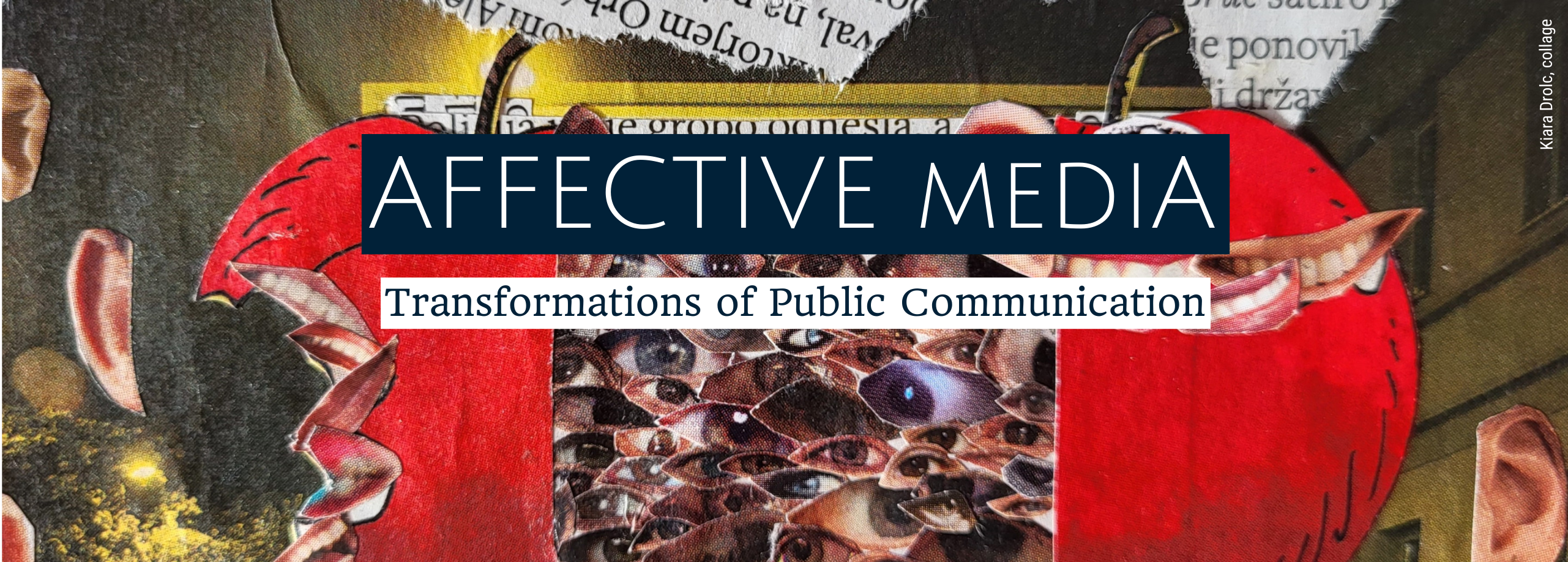
Structural Masculinism and Women’s Media Ownership, 3. 3. 2025
AFEMED project updates, 1. 2. 2025
Enhancing the hybrid media system model: The role of critical theory in media and communication research, 30. 1. 2025
Affective media: First meeting of the research group, 14. 11. 2023
Professionalizing emotions in the media, 5. 1. 2024
Reading seminar on the affective and feminist epistemology, 6. 2. 2024
The role of affects and emotions, 14. 3. 2024
Reading seminar on the dimensions and characteristics of the affective turn, 24. 4. 2024
Polarization and the politics of division, 29. 5. 2024
Attention economy, 19. 6. 2024
On the possibilities of network analysis in the context of ownership structures of Slovenian media, 1. 7. 2024
AFEMED Researchers at the ECREA Conference: Exploring Communication in Times of Social (Dis)Order, 1. 10. 2024
Authoritarian populism and media, 22. 10. 2024
Enhancing the hybrid media system model: The role of critical theory in media and communication research, 30. 01. 2025
PROJECT:
The study examines the “affective turn” in the media which has marked a series of changes, ranging from the digitalisation of newsrooms and new forms of employment to the crumbling of existing professional ideologies of journalistic work. Theoretically, the project is centred around feminist epistemology, to go beyond the views which perceive reason and emotion in an opposing way. The foregrounding of knowledge coming from the embodied experience, feelings and beliefs as they occur in the working process and everyday life enables a deeper insight into the affective social dynamics of hybrid media, which cannot be fully understood only through the analysis of technological changes that are the focus of most of the existing research. Our point of departure is that relations in the media are not only determined with regard to the means of production, but are also constituted in connection with the emotional work and feelings that cut across the public and private spheres.
PROJECT GROUP:
Peace Institute
Mojca Pajnik (leader)
Marko Ribać
Majda Hrženjak
Brankica Petković
Lori Šramel Čebular
Tjaša Turnšek
Maja Breznik
Faculty of Arts,
University of Ljubljana
Faculty of Humanities,
University of Primorska
The norms regulating rational discussion have been eroded, and conventional journalism, based on reporting facts, has been increasingly entering in the dialogue with the subjective, the affective and the interpretative. Media development unfolds in the circumstances of the “attention economy”, when it is not enough to study media through the optics of traditional journalistic canons of factual and objectivised action. What is needed is the thematisation of the “affective turn” in the media to the literalised, creative narratives that use emotion, entertainment, mixed genres and visualisation to address and engage dispersed publics. Therefore, the study examines the processes of the emotionalisation of journalism; we are interested in how this is reflected in the current social and political constellations, and in the Slovenian media system. The project provides an analysis of how journalists’ work and routines, as well as their life courses change and what is the significance of these processes for public communication and democracy.
Existing studies of the affective in the media are complemented with the conceptualisation stemming from the feminist epistemology and feminist media studies that so far have been overlooked and which always highlight the subjective and affective dimensions of work. Theoretically, we are opening up new epistemological orientations by articulating the concept of “affective journalism”; and empirically, we analyse the structuration of affective governmentality, formed in the media through the concentration of ownership and the strategies of disciplining media workers to serve the profitability of the attention economy. At the same time we try to detect the political potentials of the “affective turn”, when new political dimensions of the media are being established, which form, through the modalisation of affects, new connections with communities and try to politicise public spheres.
The study introduces the triangulation of methods. It approaches the examination of business models of media management with an original network analysis of ownership of the local media system. The method of the semi-structured interview is used for the interviews with media owners in which we examine the meanings of the concentration of the media; and the method of narrative biographic interview is used to understand journalists’ “lived experience”. Journalists’ communication on social networks will be explored by combining network analysis, content analysis and the interviews with journalists. The project is developing new approaches to researching the affective turn which comprises the macro-analysis of ownership structures, meso analysis of the emotional media work and a micro-study of affects in social networks. The results will reveal new forms of journalistic practices and groups that are formed as the result of the emotionalisation of the public sphere in the hybrid media reality.
CONTACT:
Peace institute
Metelkova 6, 1000 Ljubljana, Slovenia
Phone: +386 1 234 77 20
Web site: https://www.mirovni-institut.si
Research project coordinator:
Prof. dr. Mojca Pajnik
E-mail: mojca.pajnik@mirovni-institut.si
Funder:

Grant number: J5-50172.
PARTNERS:
